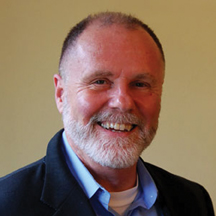 We humans are, by and large, a wary, anxious and suspicious species. Evolutionary pressures made that inevitable. Our ancestors who underestimated the threats from predators and other humans didn’t survive to pass on their genes. We’re the descendants of the more fearful ones who kept a vigilant eye on potential dangers. As a result, our brains are constantly scanning for dangers and threats in the environment, especially social threats such as rejection or disrespect. All we have to see is a frown or a hint of disapproval and our alarm systems light up. And when we trigger threat in each other it’s all too easy for us to begin bouncing off one another, mutually engendering defensiveness, retaliation, resentments, grudges, and feuds.
We humans are, by and large, a wary, anxious and suspicious species. Evolutionary pressures made that inevitable. Our ancestors who underestimated the threats from predators and other humans didn’t survive to pass on their genes. We’re the descendants of the more fearful ones who kept a vigilant eye on potential dangers. As a result, our brains are constantly scanning for dangers and threats in the environment, especially social threats such as rejection or disrespect. All we have to see is a frown or a hint of disapproval and our alarm systems light up. And when we trigger threat in each other it’s all too easy for us to begin bouncing off one another, mutually engendering defensiveness, retaliation, resentments, grudges, and feuds.
That’s why I’ve been giving a lot of thought to a traditional Buddhist ethical maxim: “Give no one cause to fear you.” It’s such a simple and beautiful idea, and it’s so diametrically opposed to what most of us have learned.
As a boy growing up in a working-class neighborhood, I was taught early that it was important to create fear in others. I understood that, on the street, I had to be armored. I had to posture and strut; look dangerous, even menacing; and appear ready to fight. I learned that it was essential for my social, and maybe physical, survival, to cover up the fact that I was gay, as well as to conceal my vulnerability, fear, and tenderness.
When I was older, I learned in the academic world and in the work world more subtle ways of warding off threats and establishing dominance—self-righteousness, irritation, edginess and impatience; caustic, sarcastic or withering tones; condescension, ridicule, humiliation, and argumentativeness; sighs and eye rolls; prosecutorial questions, high-handedness, put-downs, and on and on. No one really wants to live like this, even though to one degree or another most of us think we have to.
But the first response to any suggestion that we can live less defensively is usually that the idea is naïve and reckless. The world is a dangerous place. Don’t we need to know how to defend ourselves? Yes, we do need to be prepared to assert and defend our legitimate rights and to protect ourselves. Other people don’t need to fear us in order to understand that if they’re abusive, or that if they break agreements with us, there will be consequences.
But do we really need to be armed to the teeth (metaphorically or literally) in order to be safe? Maybe there are real advantages if the people around us feel calmer, more relaxed, safer, and more at peace with us. Maybe giving “the gift of fearlessness” to others is also a gift to ourselves.
How do we do it? Here are some suggestions:
Begin by being honest with yourself about your intentions. In difficult conversations is your intention to be right, show others how they’re wrong, or to punish? Commit to positive goals, such as finding out what really happened in a situation, being empathic, strengthening the relationship, or solving a practical problem.
Remember to relax frequently, breathe deeply, stretch, and let go. When you approach any interaction with a tense body, you signal to others that trouble might be on the way, and they immediately begin to tense up themselves. Remember also to slow down. For our ancestors, sudden events were often the beginning of a deadly attack. That’s why talking fast, firing instructions or questions, and sudden movements can rattle and alarm others.
Avoid inflammatory language and understand that even a little anger goes a long way. Just a hint of it makes others feel threatened. Notice, for instance, how a crowd can suddenly become quiet if everyone hears an angry voice. Understand that your tone of voice is as important as the content of your speech. Finally, make sure that you’re trustworthy yourself, so that others won’t fear that you’ll let them down.
The more you give the gift of fearlessness to others, the more you’ll enjoy what the Buddhists call “the bliss of blamelessness,” because you’ll know that you’ve done what you can to reduce fear in others. You’ll also notice that you begin to feel safer too, because when those around you feel safe, they’re less likely to give you cause to fear them.
Tom Moon is a psychotherapist in San Francisco. For more information, please visit his website http://tommoon.net/
Recent Comments